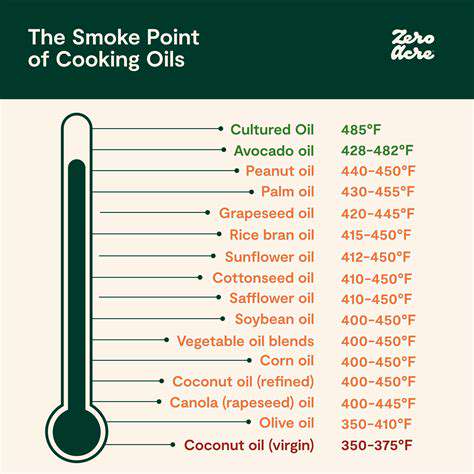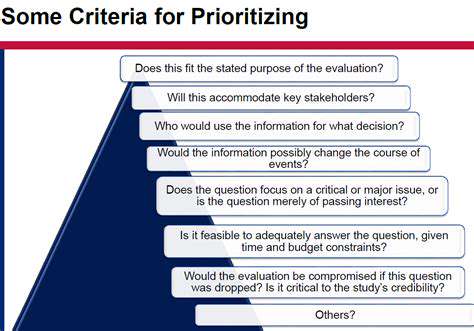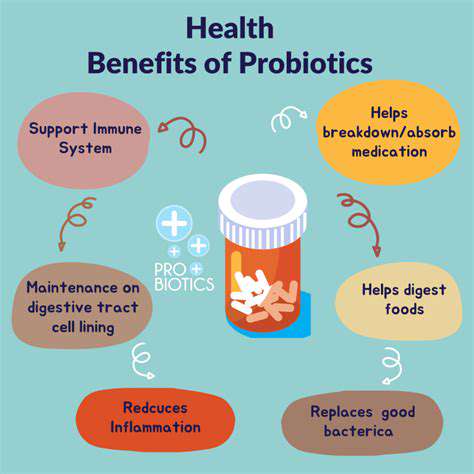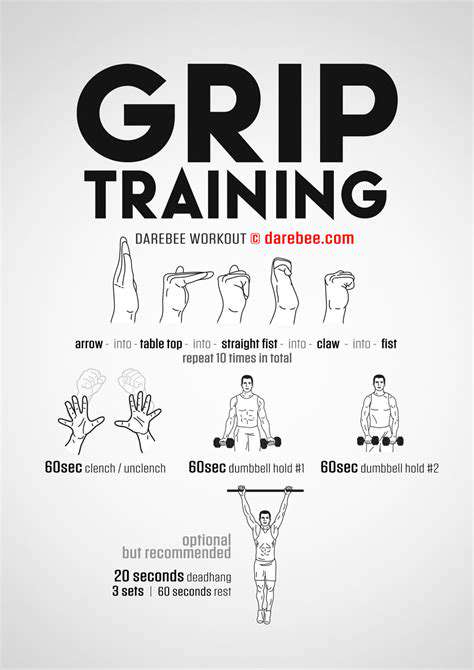Guide to Healthy Cooking Oils: What to Use When

Choosing the Right Cooking Oil for Optimal Health
Picking the perfect cooking oil isn't just about taste—it's a cornerstone of healthy living. Each oil brings its own unique blend of smoke points, fatty acids, and nutritional perks to your kitchen. By mastering these details, you'll transform everyday meals into nourishing experiences that support your body's needs.
Your oil choices directly influence your long-term wellness. While some oils pack heart-friendly unsaturated fats, others contain less desirable saturated varieties. This distinction matters because the fats you cook with can elevate or undermine your cholesterol profile, making oil selection one of the most impactful dietary decisions you make daily.
Understanding Smoke Points and Heat Tolerance
Every oil has its breaking point—literally. The smoke point marks when oil starts degrading, creating unpleasant flavors and potentially harmful compounds. Push beyond this threshold, and you'll sacrifice both nutrition and safety in your cooking.
Oil tolerance varies dramatically across types. Delicate olive oil shines in cool applications like dressings, while sturdy avocado oil can handle the intense heat of stir-frying. Matching your oil's heat resistance to your cooking method isn't just smart—it's essential for creating dishes that are as safe as they are delicious.
Factors Influencing the Best Oil Choice
Selecting cooking oil involves balancing multiple considerations: the flavors you want to highlight, the dish you're preparing, and how much heat you'll apply. Sometimes you need an oil that disappears into the background; other times, you want one that makes a statement.
Your dish's personality should guide your oil selection. A light white fish deserves a subtle oil that won't overwhelm its delicate taste, while a robust beef stew can stand up to the bold notes of coconut oil.
Heat application changes everything. That bottle perfect for gentle sautéing might turn acrid during high-heat wok cooking. Recognizing these differences separates good cooks from great ones.
Nutritional Value and Health Benefits
Cooking oils aren't just culinary tools—they're nutritional powerhouses. Some deliver antioxidant punches, while others provide essential fats your body craves. Making informed oil choices can significantly boost your dietary health. Take olive oil, celebrated for its heart-healthy monounsaturated fats and potential to support cardiovascular wellness.
When you understand what different oils bring to the table nutritionally, you're not just cooking—you're actively nourishing yourself and your loved ones.
Cost and Availability Considerations
Let's face it—budget and accessibility matter in the real world. While premium oils like cold-pressed extra virgin olive oil deliver exceptional quality, their price tags might not fit every grocery budget.
Smart shoppers balance quality with practicality. By comparing options and staying open to different brands, you can find oils that deliver both performance and value without breaking the bank.
High Heat Cooking Oils: The Champions of Flavor and Texture

High Heat Cooking Oils: The Champion
When the heat turns up, ordinary oils fail—but champions rise to the occasion. These heat-resistant warriors make perfect sears, crispy fries, and golden sautés possible. Choosing your high-heat ally wisely means the difference between culinary triumph and kitchen disaster. The secret lies in understanding how different oils behave when temperatures soar.
Smoke points tell the story—the moment oil starts burning and breaking down. For high-heat cooking, you need oils that laugh in the face of intense temperatures. This single factor determines whether your dish emerges beautifully caramelized or unpleasantly burnt.
Factors to Consider When Choosing High Heat Oils
Selecting a high-performance cooking oil involves evaluating several critical factors. Beyond just smoke points, consider how stable the oil remains under pressure and what flavor notes it contributes. The best choices maintain their integrity when the heat is on, protecting both your food's quality and your health.
Chemical stability separates the contenders from the pretenders. Some oils withstand high temperatures without forming harmful compounds, making them safer choices for frequent high-heat cooking. Flavor neutrality often proves equally important, allowing your ingredients' natural tastes to take center stage.
Optimal High Heat Cooking Oil Selection
The high-heat oil hall of fame includes reliable performers like peanut, canola, and vegetable oils—all bringing impressive heat tolerance to your stovetop. Sunflower oil joins this elite group, offering both high smoke points and dependable performance. Your perfect match depends on both your recipe's demands and your personal taste preferences.
Knowledge transforms cooking from guesswork to precision. When you understand oil behavior at high temperatures, you gain control over outcomes—producing consistently excellent results while minimizing health risks. Beyond pure performance, factors like flavor compatibility and cost efficiency help refine your ultimate choice.
The S&P 500, or Standard & Poor's 500, tracks 500 leading U.S. companies, serving as the financial world's crystal ball for the American economy's health. Since its 1957 debut, this index has become the gold standard for investors, offering unparalleled insight into market trends and economic vitality. Its movements tell a story about broader economic conditions, making it indispensable for anyone with skin in the financial game.
Read more about Guide to Healthy Cooking Oils: What to Use When
Hot Recommendations
-
*Guide to Managing Gout Through Diet
-
*Best Habits for Financial Well being
-
*How to Build a Routine for Better Mental Health
-
*How to Eat Healthy on a Budget [Tips & Meal Ideas]
-
*Guide to Practicing Self Acceptance
-
*How to Incorporate More Movement Into Your Day
-
*Guide to Managing Chronic Pain Naturally
-
*Guide to Building a Reading Habit for Well being
-
*Top 5 Weight Loss Supplements That Actually Work
-
*Best Exercises for Postpartum Recovery [Beyond Abdominal Work]











